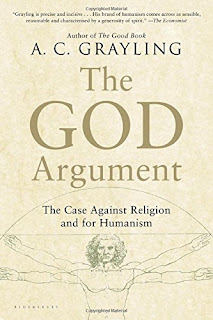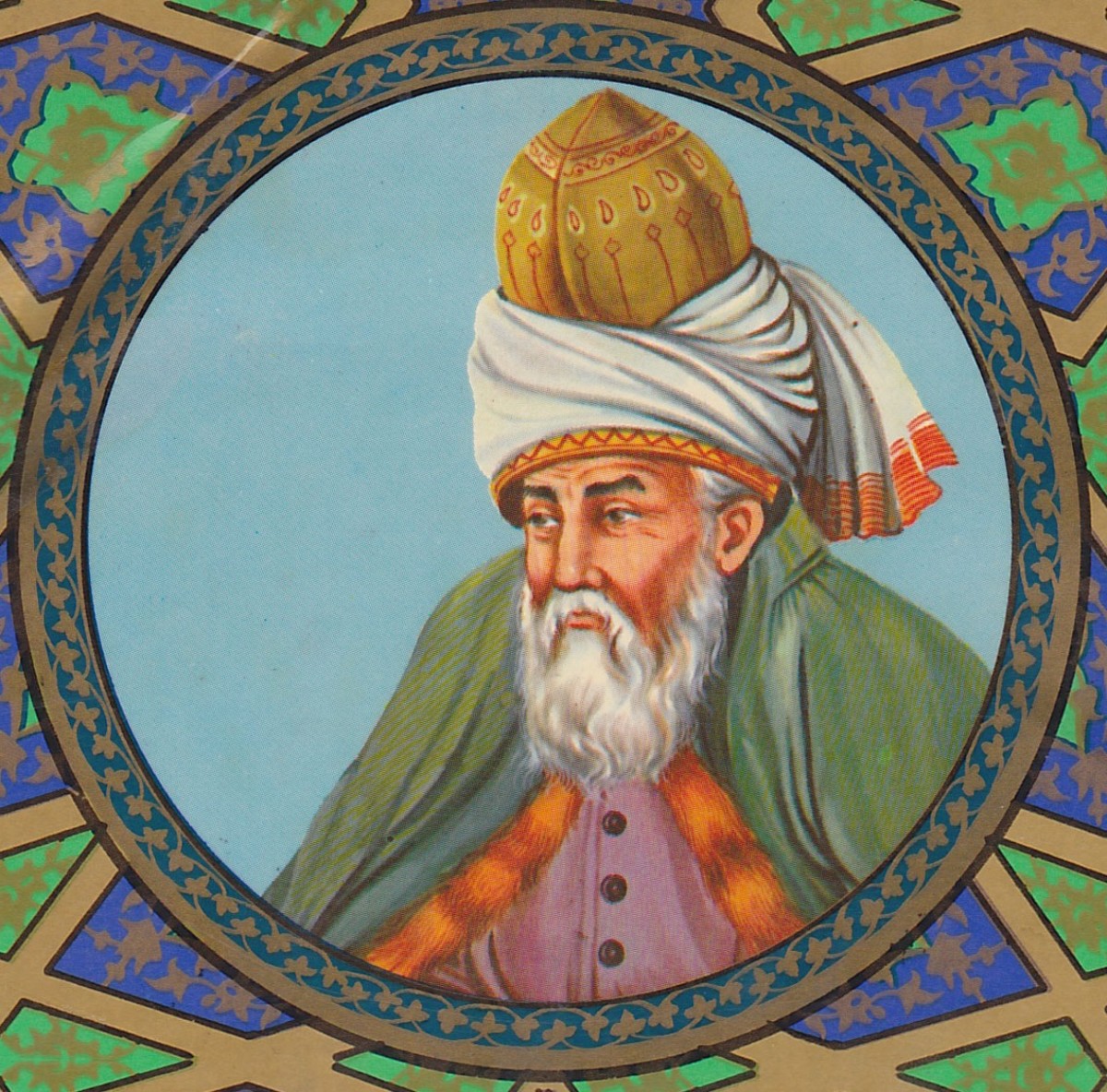Book Review: A.C. Grayling's The God Argument
A.C. Grayling shows himself the consummate rational atheist in The God Argument, arguing deeply and profoundly his stance. His book is broadly divided into two parts; the first is dedicated to scoping out the arguments for and against religion and religiosity – the notion of a divine being that suppresses men's baser inclinations, Grayling says, is superfluous, even unnecessary. The second proposes a shift away from religiosity, or the penchant to believe in some god that arbitrarily imposes precepts onto the denizens of the earth, and toward humanism. Humanism, he argues, presents one’s moral and ethical values as the conclusion of one’s own deliberation and considered judgments, arrived at through Reason. After all, ‘that is what is meant by living autonomously – taking responsibility, thinking things through.'
In his summary of the passionate debates raging around
religion, Grayling firmly takes the side of Humanism, as against religion and
its inherently fundamentalist nature, for ‘all forms of fundamentalism are
notable for the infantilising and binding effect they have on their votaries’.
Science as well, in his view, is firmly opposed to religion, and ‘everywhere
that science and education have advanced, so religion has dwindled in influence’.
No matter one’s personal faith or creed, one nevertheless has to admit Grayling’s
thoroughly insightful comments on the traditional arguments for religion, these arguments dating
back to Thomas Aquinas’ (AD1225-1274) Magnum Opus Summa Theologica. He does not hesitate to level trenchant
criticism, perspicaciously prying open the teleological (argument from design),
ontological (argument from definition) and cosmological (argument based on
empirical fact) arguments from the seams.
Grayling takes pains to be easily understood and followed
throughout his nevertheless sophisticated journey. There is no doubt that any
devout or pious person might feel uncomfortable or even offended at having
their most fundamental beliefs scrutinized thus, but I guarantee that, should such be the case,
such emotions are purely reflexive. Grayling is neither contemptuous nor
contumelious, relying firmly upon generally accepted and reasonable grounds
from which he argues his point. When he presents certain assertions, these are
substantiated and nevertheless rendered distinct from the purely logical
conclusions – allowing the reader to decide whether he or she will accept what
is propounded. In essence, not only are these arguments, and related
corollaries, disputed (for ‘arguments’, Grayling notes, invites attempts at
rational refutation or affirmation), but the very fundamental basis for the
existence of religion is questioned; is religion and the profession of the
various faiths really needed for a fulfilling life? Does existence derive its color and meaning from it? Grayling’s proposal is to rethink our instinctual
urge to believe in God (of whatever faith): the inherent need to believe in
something more can be satisfied by Humanism, as he describes it.
One might initially feel that this balanced refutation of
religion denies the overall good of all religion in every phase of human
history; yet the argument is for Humanism to supersede religion today, and these grounds are argued for
by a balanced weighing of the good of religion to the bad it has sanctioned throughout
history. My belief is that religion has indeed been integral to the development
of human society, and especially with the creation of legal institutions, by
which our secular states flourish today, such that it would be impossible (and
highly foolish) to attempt to speculate what course history might have followed
in the absence of religion. Yet Grayling does not go so far as to say that it
might have been better if religion never existed – rather that perhaps there is
a better and more rational system we should adhere to in the contemporary context.
Grayling’s argumentation particularly shines through in his
dealing with the Cosmological argument. This argument is, in summary, that
everything in the universe has a cause, and therefore one might conceive of the
fact that there was a first cause, this cause being seen by some as the
traditional ‘God’ of religion. No doubt Grayling is astute when he says
sophists mistake a logically necessary being for a metaphysically necessary
being; there is no reason to impute the characteristically human traits that
the traditional God ostensibly has to this ‘first cause’. But one might say
that nothing stops men from calling this ‘first cause’ God, God being
understood as a concept not yet (or perhaps forevermore) incomprehensible to
the human mind. Grayling brushes aside the idea that there must have been a
first cause by citing the fact that Science’s account of the universe’s
existence as caused by the Big Bang is presumably more convincing. Yet I would
point out that the Big Bang theory is simply just that – a theory. The point is
rather that by attempting to ham-fist ‘God’ or some other divine or
supernatural being into the account of the universe, we give up on attempting
to refine and postulate new accounts of its origins, which is the basis of
Science: that is, hypothesis and falsification.
If Grayling’s book interests you, do check out Karen
Armstrong’s Fields of Blood, which
takes the opposing stance: that religion still has contemporary significance.
Reading Description: Intelligent and Concise




Comments
Post a Comment